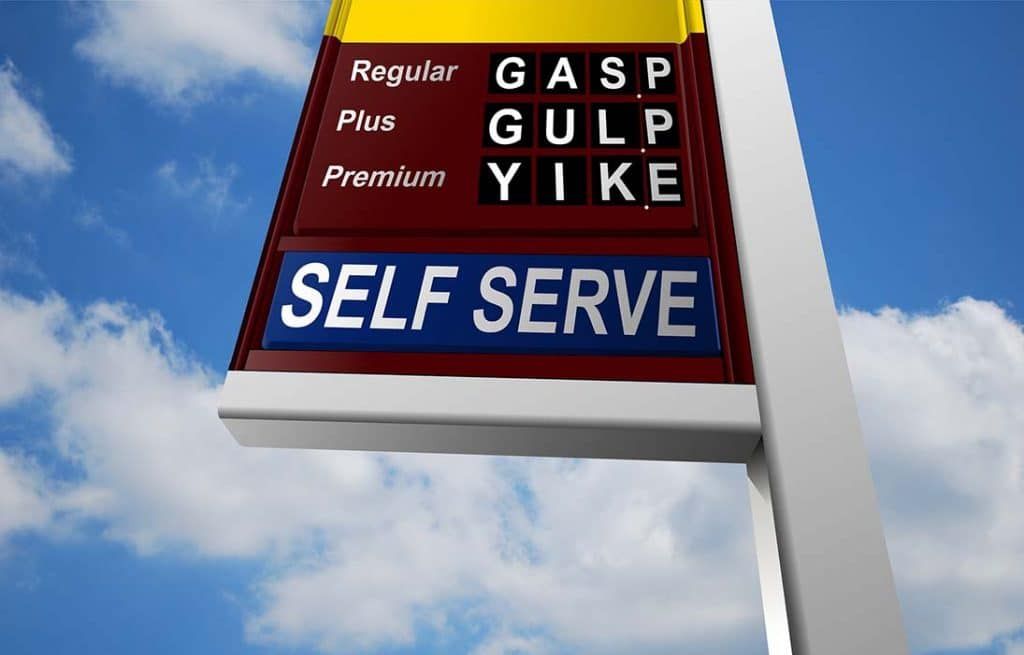Big Oil’s lies about climate change—a climate scientist’s take
By Adam Sobel | July 9, 2021
 Image courtesy of Merio/Pixabay
Image courtesy of Merio/Pixabay
The Guardian’s new series of articles on fossil fuel companies’ culpability for the climate crisis is entitled “Climate Crimes.” Is this too extreme a title?
After all, Exxon and the others were just working within our legal, economic, and political systems to provide a commodity we all use every day. They may have known that global warming posed a risk, but people accept all kinds of risks in exchange for the many benefits of living a relatively affluent life in a modern, industrialized economy. Is it really appropriate to call them criminals—and accordingly, to take them to court all over the world?
I think the answer is yes. It comes down to the scale of the harm; the willful, systematic, and sustained nature of the lying; and the leading role the climate denial movement has played in the sustained assault on democracy that we see today.
I’m no lawyer, so this is not a legal judgment on my part. In fact, because the scale of the crime is so great, it seems to me that, notwithstanding a glimmer of hope here or there, the legal system so far seems ill-equipped to grasp it.
But the moral case, at least, is clear.
We know now that fossil fuel company researchers understood early on, from their own work as well as that of academic and government researchers, that warming due to human emissions of greenhouse gases posed risks at the planetary scale.
If a company were to dump toxic waste in your back yard, making the air you breathe and water you drink hazardous, they’d be liable for the harm they caused you. (Of course, fossil fuel companies have done exactly this also, in many places around the world, and often faced little consequence, particularly when the victims are from poor and marginalized communities.)
Increasing carbon dioxide concentrations globally doesn’t poison us, but it’s still broadly analogous to this backyard example—except on the scale of the entire planet. Instead of giving us cancer or heart disease, the increase in carbon dioxide emissions is making essentially irreversible changes in the environments in which we all live, such that they deviate from those to which our civilization is adapted.
We’ve known for some time that that’s exceedingly dangerous. We know it even better now, as we see unprecedented heat waves and wildfire seasons coming ever more frequently and sea level rise lapping at coastal cities. The scale of the harm is difficult, perhaps even impossible to calculate; for example, how do you account for a small probability of true global catastrophe due to unpredictable tipping points? Economists try to calculate it nonetheless, but it’s almost certain that they—and consequently also politicians—have historically grossly underestimated the sheer scale of the harm, because economics as a discipline is based on assumptions that don’t fit global-scale environmental crises.
Because carbon dioxide and other greenhouse gases are well-mixed—so that emissions anywhere affect climate everywhere—the cause and effect are also much more diffuse than in the back yard waste example. This diffuseness, as well as the fact that the climate system responds slowly (so that the worst consequences remain in the future), make our legal system poorly equipped to handle the climate problem. The “global” in global warming makes it hard to prosecute in court, at the same time that it makes it so enormously grave.
So while fossil fuel executives may have understood the potential harm to which they were exposing all of us, one could argue that they have worked within the legal system while extracting and selling fossil fuels. They have also been fulfilling their fiduciary duty to maximize shareholder value. In a sting video recently released by Greenpeace, a top Exxon executive, speaking with a frankness we never see in public from such people, made exactly these arguments. Are those arguments not fair? Haven’t the fossil fuel execs just been doing their jobs?
No, because of the lying. With all the resources at their disposal, these companies have systematically, cynically misrepresented and suppressed the facts. Their jobs didn’t require them to do this. But they did, and in such a way as to hide the fact that they were doing it: sponsoring outside groups to spread doubt and confusion, and even supporting bogus research to create the appearance of dissent among scientists. All this is well documented and widely known by now. And they’re still doing it: perhaps not all of them, and perhaps in some cases with different tactics, but fossil fuel companies are still funding denial groups and politicians who act on the denial agenda.
Since carbon released from the ground into the climate system stays there for millennia, enormous numbers of people, now and in the future, will be paying the price for a very, very long time. That long time scale is another factor that makes the crime at once so egregious and so difficult to comprehend.
But what’s scarier now is how the denial agenda has outgrown the climate problem, morphing into a full-scale attack on any sense of shared reality, and thus on our democracy.
When the climate denial movement started in the 1970s, most people still got their news from a set of gatekeeping referees: national media, informed by academia and other trusted sources. All these gatekeepers had their biases, and they could be wrong, but they mediated a shared reality, and that facilitated the US democracy that those of my age grew up with. Whatever its many and serious flaws, that democracy allowed for some real social progress, and for the hope that national challenges could be addressed by electoral politics.
The shared reality no longer exists, and democracy is under direct and serious threat. Diagnosing all the causes of this will be a task for future historians, but I’m convinced that, looking back over the last few decades, climate denial was the leading edge. And today, it’s no accident that many fossil fuel companies have backed former President Trump’s claim that the 2020 election was stolen.
Having learned that propaganda can make a decent fraction of the population believe lies on a large scale with no consequence, it’s hard for these bad actors not to keep doing it, and to apply that power more widely. Maybe being a climate scientist colors my view, but “the science is not settled” looks to me like the gateway drug that led to “stop the steal.”
I know that we—those of us affluent enough to be in a position to read or write this—all are complicit, to varying degrees, in the climate crisis. I’ve flown on lots of airplanes and so on. And I know that many good people work at fossil fuel companies; I know some of them personally. But I can’t forgive those at the top who made the decisions that first created the climate crisis, and who now are working to disable whatever capability our political system might have to deal with it.
Criminal seems a fair word to use.
Together, we make the world safer.
The Bulletin elevates expert voices above the noise. But as an independent nonprofit organization, our operations depend on the support of readers like you. Help us continue to deliver quality journalism that holds leaders accountable. Your support of our work at any level is important. In return, we promise our coverage will be understandable, influential, vigilant, solution-oriented, and fair-minded. Together we can make a difference.
Keywords: Carbon emissions, climate change, climate crisis, climate denial, fossil fuel industry, global warming, merchants of doubt
Topics: Climate Change, Opinion
















We will find out soon when the west of America turns into the Sahara
Just out of curiosity, what sort of culpability would you assign to China and India that are continuing to build coal-fired electrical plants, and the countries who are rushing to develop new oil fields, such as Ghana?
Add the OPEC+ countries into the culpability mix. Does anyone think Putin cares about the US west drying up? The Arabs live in deserts and they are just fine with it!
How about those selling fossil fuels to these countries? And the companies who actually develop these extractions? Most are in the west.
This argument is exactly the same as me blaming my local grocery store or restaurant for my expanding waistline! What I put in my mouth or my fuel tank is my responsibility alone.
Not when you advertise all the benefits of what you sell in the grocery store, including the additives that kill your biome and disrupt your system so that it cannot behave normally. It is exactly the same kind of environmental disruption caused outside.
Without fossil fuels the modern world would not exist and everyone would be poor and with untold suffering and disease. You arguments sound more like those coming from a child.
Not everyone. Most of the fuel consumption is for trivial purposes, and to manufacture items that become part of the world burden, such as plastics.
Are you all aware of how many products are made from petroleum?
Yes, and you know how they are poisoning the environment.
I am now of the mind that all our troubles are systemic in the sense that our way of life depends on great inequities among citizens. Our economic system and laws are the primary forces behind environmental and economic problems that generate social issues. Religions also support the system. All our current efforts to address issues are mere bandaids.
Well, what’s and who’s to worry? Not me!! Now that pandemic precautions have prematurely been lifted so we can all race off in our cars for a petrol-based vacation! I could see it happening from my window this last weekend—cars bumper to bumper, crowding onto the freeways! Honking, waving and happy! At least the Economy will be safe, and especially big oil! Whose idea was that, anyway, to lift the pandemic precautions and thus cut the ribbon for an onslaught of oil consumption? Pure genius! Freedom is so wonderful! First things first, I say! Oh, well, probably doesn’t make much… Read more »